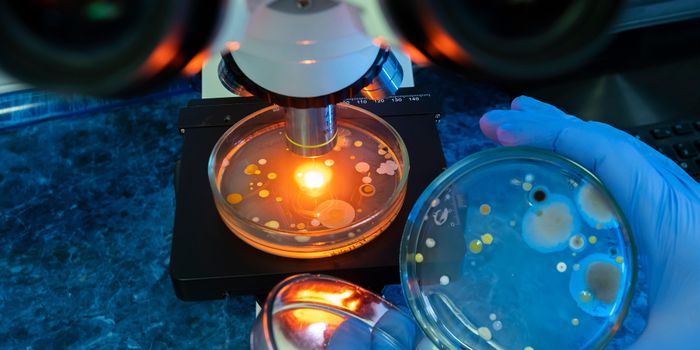Certain Colon Cancer Can be 'Starved' to Death
Colon cancer is the third most common non-skin cancer type in the U.S. Now researchers say they have gained a huge advantage in discovering the key compound that sustains a large portion of these cancers. By blocking the compound, researchers showed significant tumor reduction. The findings are so promising that clinical trials for colorectal cancer patients will be starting this August at the University Hospitals Seidman Cancer Center.
Approximately over 1 million Americans are diagnosed with colorectal cancer, also known as colon cancer. Of these cases, about a third are due to mutations in a gene known as PIK3CA, which is involved in critical cell signaling processes such as cell growth and division, migration, and survival. Mutations in this gene are also responsible for a host of other cancer types, including lung cancer, breast and ovarian cancer, and head and neck cancer.
In studying colon cancer cells with PIK3CA mutations, the team at Case Western Reserve noted a very specific pattern of metabolism. In particular, they found that cells with PIK3CA mutations broke down the amino acid glutamine at a significantly faster pace than cells without the mutation. The increased need for glutamine stemmed from cancer cells’ overactive enzyme activities. Thus, glutamine is necessary in the colon cancer cells’ survival.
“We discovered that colon cancers with PIK3CA oncogenic mutations are addicted to glutamine, a particular nutrient for cancer cells. We also demonstrated that these cancers can be starved to death by depriving glutamine with drugs," said Zhenghe John Wang, professor of genetics and genome sciences and co-leader of the Cancer Genetics Program at Case Western Reserve University, and senior author of the study.
Indeed, when the team starved mutant cells of glutamine, they observed more cell death. Even more promising, when they reduced glutamine levels in mice with colon cancer, they saw slower and smaller tumor growths. The same treatment in cancer cells without the PIK3CA mutation were not effective, indicating a specific link between PIK3CA and glutamine.
Glutamine is a non-essential (or conditional) amino acid that can be made by the body under the appropriate conditions. Its levels can be easily modulated with glutamine blockers, making treatment relatively straightforward. Furthermore, because PIK3CA is a well-known player in many other types of cancer makes the results are broadly appealing. As such, Phase I/II clinical trials stemming from this study are already planned for this later this summer.
"This study provides the basis for a colon cancer treatment clinical trial that will be started in the summer at the University Hospitals Seidman Cancer Center," according to Neal Meropol, chief of the division of hematology and oncology, and lead investigator for the trial.
Additional source: Case Western Reserve University materials via EurekAlert!










